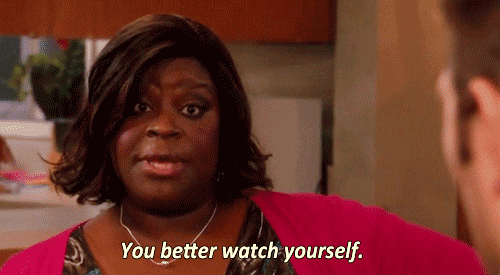
“Life is easy,”… said no one seriously, ever! What will you ever learn from treading the path of least resistance, from forsaking what is challenging for what is simple? Not a whole lot. Life isn’t a walk in the park, nor should it be for anyone. Humans are meant to be challenged throughout our daily lives. It keeps our minds honed and prepared for wherever we go or whatever we choose to pursue next. Yet, we don’t think in this way most days; we live busy lives already. What’s the use of going out of our way to do something that we deem a good but unnecessary idea, for ourselves or another person? What’s the use of inconveniencing ourselves today for the gain of someone else or for a goal we have that is many years down the road?
Well, as much as we try to convince ourselves otherwise, the easy way is not always the right way to live our lives in most cases. Fulfillment can rarely be achieved in the same old daily routine; for example: eat breakfast, go to work or school, come home, eat dinner, watch TV, go to bed, repeat. When put in words, the daily routine sounds incredibly boring, and it is! When you can forecast exactly what you’ll be doing in a week’s time, and how each day will more or less play out for you, that’s when you know you’d do well with a little change in your life. It might make your time more constrained throughout the day, but if you have the right attitude, you’ll surely succeed.
Vice versa, the right way will rarely be the easy way to do things. It’s difficult to decipher the difference on days when you’re not in the best of shape, and that is perfectly acceptable. On your off-days, doing things for yourself is often the best course of action for a rapid recovery. But on the days when you’re bright-eyed, bushy-tailed, and as ready as ever to face the day ahead—that’s when you should realize that the easy way should leave you unfulfilled after all is said and done.
So what exactly is the right way to do things, to live your daily life? It’s important to note that “right” is a subjective term; there is no “right” way to do anything, really. Everyone is entitled to their own ideas on what they deem is right for them. What I’m referring to as the “right” way here is essentially being in a state of mind that openly seeks out and accepts opportunities, experiences, and challenges that are outside of your established daily routine (I hope that you agree. If not, please hear me out).
Always having enough tasks or short-term goals to complete throughout the year, aside from the toils of the week, is a way to be proactive, experience lasting fulfillment, and involve yourself in the community. For students, a proactive task that you can start right now is to research and apply for scholarships. Applying for one relevant (and preferably local) scholarship a month is a rewarding endeavor that will inevitably pay off down the road. Alternately, one of the best ways to live life for the right reasons is to do things for others on a regular basis—for your family, friends, neighbours, colleagues, and even complete strangers! Looking for ways to help others that are most deserving almost every day will reward you tenfold.
This could be giving back to the community, helping out a family member or friend with a job that needs doing, or smiling and saying hello to strangers that you pass. Incredibly simple, yet surprisingly difficult for most people, myself included! However, you won’t regret doing it. Stepping outside of your comfort zone, of what comes easy to you, is a very brave endeavour and is something to be proud of.
The hardest part of this “right” lifestyle is finding or rediscovering balance. My suggestion: estimate how much time outside of work or class that you have to dedicate each week to get projects, readings, and other schoolwork completed on time. With the remainder of your time, identify three activities or hobbies you would like to get involved in each week that will still allow you to have some deserved free time. Perhaps you already go to the gym each week; that’s a great start! What else can you get involved in that will keep you engaged with others and allow you to set personal goals, or will be a productive activity that will benefit you down the road? Do your research and don’t be afraid to prioritize your precious time. It’s not going to be easy… But who ever said it was going to be?
Yeah, this has been a long-winded blog, but one that I hope resonates with you. Life is not going to be easy, but live yours to the fullest! Make yours one that you can be proud of when you look back on it. The right way isn’t going to be easy, but the easy way isn’t always right. Be brave, because you can do anything you set your mind to!









